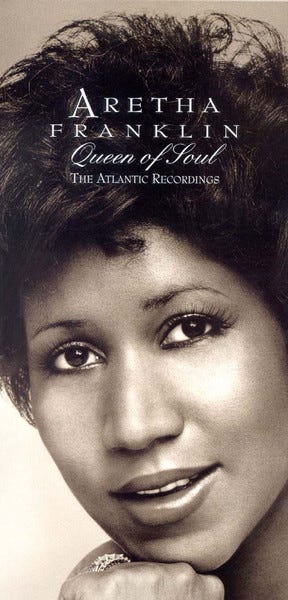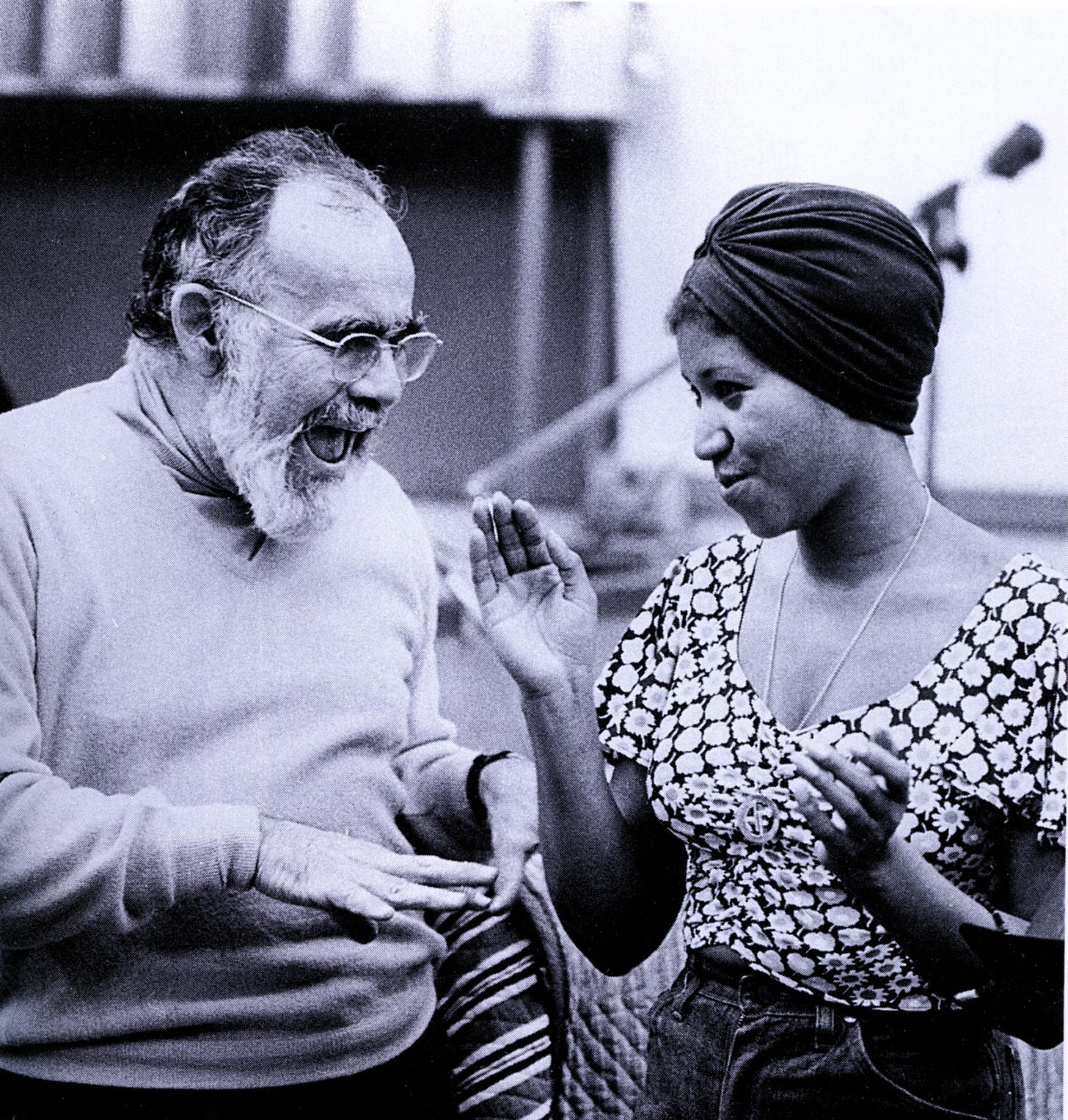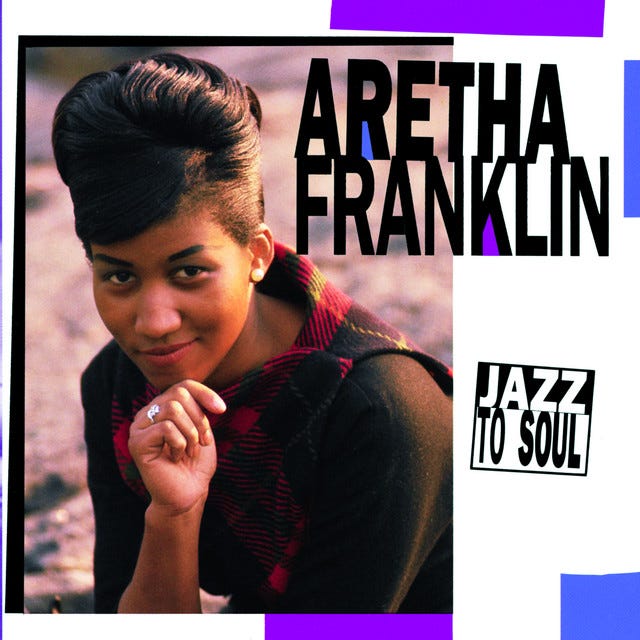What happened to Aretha Franklin at Atlantic
"I put her back behind the piano and sent her back to church."
Aretha Franklin, Queen of Soul (Rhino) is a glorious 86 song, four CD box covering Franklin's 12 years on Atlantic Records from 1967 to '79. Franklin had spent the first six years of the '60s on Columbia, which as John Hammond, the man who signed her eventually admitted "didn't know what to do with her."
Producer Jerry Wexler who signed her to Atlantic certainly did. His words describe it best, "I put her back behind the piano and sent her back to church." The result as this set superbly documents was not only some of the greatest R and B and soul ever recorded, but the unleashing of one of the most amazing singers of the century.
For Franklin's first session, Wexler brought her down to Fame Studios in Muscle Shoals, Alabama to work with the now legendary Muscle Shoals Rhythm Section. The result, "I Never Loved A Man (The Way I Love You)" shot straight to the top of the R and B charts and the top 10 of the pop charts. In a banner and pivotal year for pop and rock 'n' roll, which saw the rise of Jimi Hendrix, Cream, the San Francisco sound along with such album as Sgt. Pepper, this song still stands out as not only an extremely powerful, but a perfect record. It was lowdown, mean, earthy and not only incredibly funky, but bluesy as well. Everything about it from Franklin's piano to Roger Hawkins' drums, Chips Moman's guitar, the horns and most of all Franklin's vocal blasts upward in one intense charge. Franklin and her then husband/manager Ted White didn't like Alabama, but Wexler knew he was onto a good thing and brought the Muscle Shoals musicians north to New York. The result was "Respect" which left no doubt in anybody's mind about Franklin's greatness.
The song had already been an R and B hit for Otis Redding, but Franklin for all intents and purposes rewrote it -- the two versions sound nothing alike.
The album that followed, I Never Loved A Man, easily lived up to the promise of those two singles, showing Franklin to be much more than an astounding soul shouter, but capable of a number of styles from ballads to mild bossa nova, not to mention a topflight piano player.
For the next few years, Franklin kept it up, releasing hit after hit and incredible albums such as Lady Soul, standing far above everyone else. What this retrospective makes abundantly clear is that Franklin kept up the great work long after the first few golden years with Atlantic.
Along the way she experimented with big band blues such as "Pitiful," and definitely moving into pop. But she never lost the gospel shout, the total injection of not only emotion, but singing with everything she had in her. This set will keep you listening and entranced well into the fourth CD, as you discover great songs from albums you might have passed up, like for instance her treatment of Elton John's "Border Song (Holy Moses)."
One could quibble about the songs left off such as her masterful reading of Sam Cooke's "A Change Is Gonna Come," but for the most part the selections are right on.
The most serious omission is that only one song from her superb gospel album Amazing Grace is included and one could make a case that they could have tightened up the first three CDs and included that whole album (which is available) as the fourth. Queen of Soul will provide endless hours of pure pleasure, and may inspire you to check out some of Franklin's later Atlantic albums as well.
Earlier this year, Columbia/Legacy released a two CD set of some of Franklin's work on that label, Jazz to Soul. What this set shows is that Franklin's early work has been unfairly maligned. Yes, Columbia did cast Franklin as a pop singer, then a jazz singer and all kinds of things in-between and rarely captured the gospel soul that Atlantic had long been masters at.
But there is some stuff here such as "Maybe I'm a Fool" that equals the power of her Atlantic recordings and the Columbia recordings have a wider range of material that show the depth of Franklin's extraordinary vocal abilities. It all comes down to how open you are to various kinds of music. Nothing on this set rocks like the Atlantic stuff, but it's immediately clear when you put it on that yes, this is Aretha Franklin. By wisely sticking mostly to blues and jazz, Columbia has created a context to appreciate this music, and what you get is a master vocalist. Her phrasing and how she approaches many of these songs is impeccable. In fact, the way Franklin sings on this set is much closer to the way she sings in concert now -- restrained, but eloquent. Granted, the Rhino box is undeniably her greatest stuff, but there's plenty of surprises here like the previously unreleased "Once in a While" and "Skylark."
Get Queen of Soul first, and if you're hungry for more Jazz to Soul is a more than worthwhile place to start.









Nice soulful version of Border Song